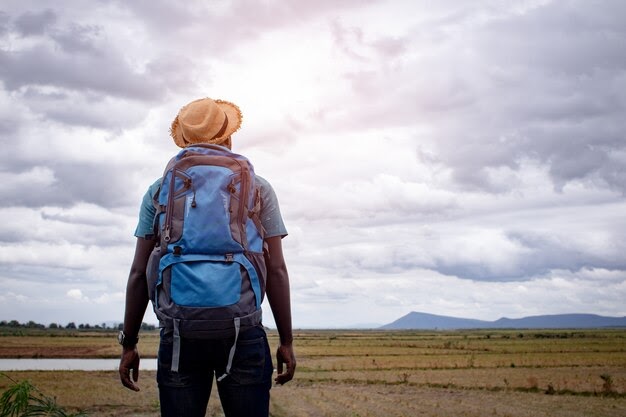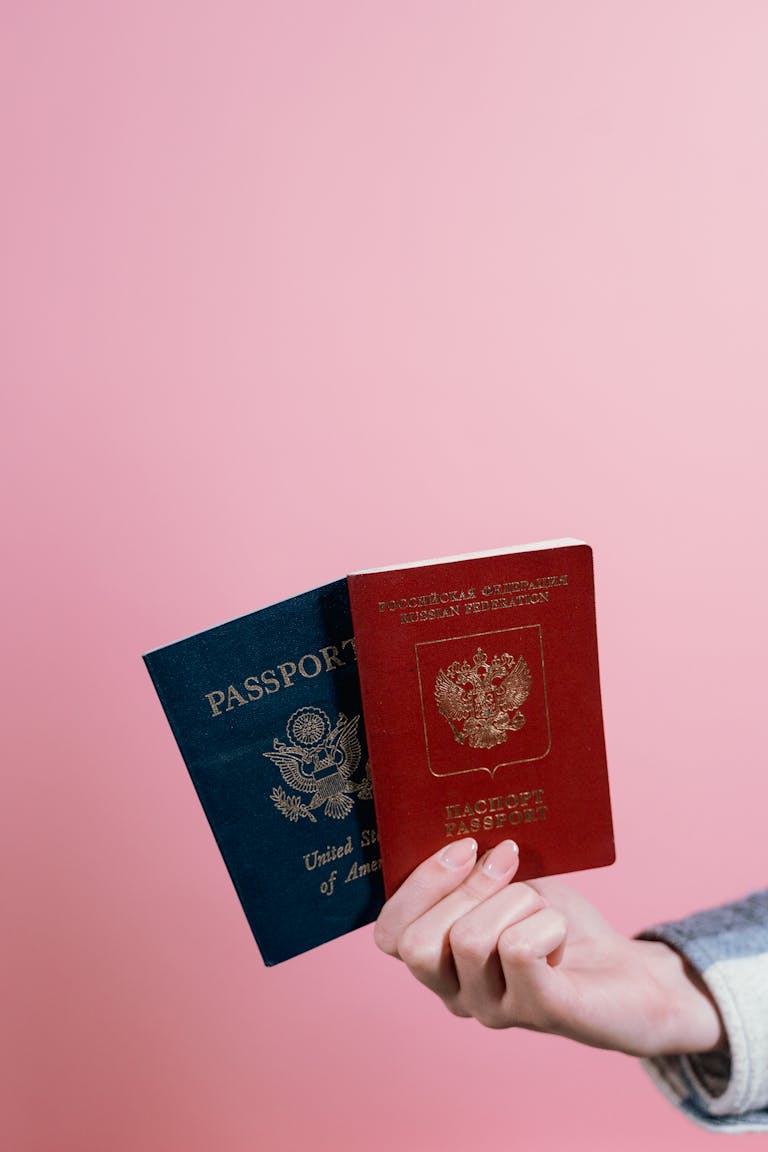7 Effective Ways to Overcome Pre-travel Anxiety
The fear of visiting a new, unfamiliar place and the stress of travel plans can lead to pre-travel anxiety. As your departure date approaches, at some point before your trip, you’ll likely start flipping back and forth as a few doubts creep in. “What if” set in, which can become serious, and can also stop you from going on vacation or enjoying your traveling.
So in this article, we’ll be discussing:
- What is Pre-travel Anxiety?
- 5 Signs and Symptoms of Pre-travel Anxiety
- 4 Main Causes Pre-travel Anxiety?
- How to Cope with Pre-travel Anxiety: 7 Tips to Overcome it
What is Pre-travel Anxiety?
Pre-trip anxiety can be an encompassing fear of what lies ahead of you, on your journey into the unknown.
It’s not a specific phobia, such as fear of flying or driving. Although these phobias can contribute to the anxiety felt by someone with pre-trip anxiety.
5 Signs and Symptoms of Pre-travel Anxiety
Anxiety symptoms vary in everyone. For pre-travel related anxieties— when you think about traveling or travel, you may experience;
- Rapid heart rate, chest pain, or breathing difficulty.
- Nausea or diarrhea.
- Restlessness and agitation.
- Decreased concentration or trouble focusing.
- Sleeping disorder or insomnia.
If these symptoms persist or become overwhelming, they can trigger a panic attack.
During a panic attack, it’s common to experience a racing heart, sweating and shaking. You may also feel disoriented, dizzy, and weak. Some people also feel disconnected from their bodies or surroundings.
4 Main Causes of Pre-travel Anxiety
There are a variety of events and experiences that contribute to the causes of pre-trip anxiety. Some are;
- Hearing about negative travel experiences, such as plane crashes or foreign illnesses, can spike anxiety in some people.
- Thoughts of unforeseen events or casualties due to past events. Negative associations with traveling can develop from different experiences. “ A recent study shows that 65% of people who have been in a major accident develop pre-trip anxiety”.
- FOMO: The fear of missing out on events, family, and friends at home, and leaving home
- Offhand negative comment about your trip/destination being dangerous or boring
How to Cope with Pre-travel Anxiety: 7 Tips to Overcome it
Given the traditional-day realities of travel, every time you feel anxiety symptoms flaring up, fear-ridding your brain saying “this is a sign from the universe/God trying to tell me that I shouldn’t go.” with projection of deadly images or possible bad occurrences.
I hate to break it to you that this isn’t your intuition or clairvoyance, it’s you allowing your fears to trip in. Banish those fears and images from your mind, because they’re one of the biggest causes of pre-trip anxiety, and they can be ignored.
You’ll have a successful trip,with wonderful experiences. And it’s going to be awesome!
Given the modern-day realities of travel, a little anxiety is inevitable and more common than ever. Fortunately, it’s treatable, and also even preventable.
If you plan a strategic defense for this anxiety, you’ll be able to manage it better. Below are the tips that can help you cope:
- Practice Extra Self-Care Before Your Trip
- Identify what is making you feel uneasy
- Identify your triggers
- Plan for certain scenarios
- Remember it is your trip
- Consider medication
1). Practice Extra Self-Care Before Your Trip
Even if you feel confident, it’s good to guard against anxiety triggers before you go on your trip. This is especially important if you’re trying to finish up big projects at work or home before you leave.
Here are some ways to practice self-care:
i) Exercise
Whether you’re a fitness pro or an escapee, make sure you break a sweat by having at least a 7-minute workout to help your mind clear super-fast!.
Exercise increases the production of serotonin and norepinephrine, known as “feel good” chemicals, in the brain. These can help improve your mood before a trip and relieve some of your anxiety.
ii) Have an outlet that lets you express yourself and your feelings, even if it is indirectly
Read, write, make music, or release creative energy.
iii) Spend time with loved ones
Being present with loved ones creates trong emotional support to buoy you up, boost your confidence and help you feel at ease.
iv) Practice relaxation
Mindful meditation can help to significantly reduce anxiety symptoms. Breathing heavily, taking long walks, relaxing your muscles, and staying grounded can help you relax and deal with anxiety.
v) Stay healthy
Eat well, start hydrating and get enough sleep.
2). Identify what is making you feel uneasy
As your trip approaches and you’re queasy at the thought of it. You don’t even know if this is excitement or anxiety. Believe it or not, some people confuse excitement with anxiety because the symptoms of restlessness and increased adrenaline mimic each other.
So what’s the difference? Fear, dread and worry set pre-trip anxiety apart from mere excitement. Try to figure out the source of what’s bothering you to defeat the anxiety.
- Are you nervous about getting Robbed? Pack in a lockable bag if it would make you feel more confident about not getting pickpocketed.
- Not being able to communicate with anyone? If you’re nervous about meeting people, try to make connections before you go. You can post a message to the local group or book yourself into a dorm or private room at a social hostel.
- Are you afraid of flying or heights? Stay off the windows. Aisle seats can be helpful if you feel claustrophobic or restless and need to move around. You may also find it helpful to bring along earplugs to reduce the plane sounds. Or headphones to listen to your favorite music. Or a relaxation guide to help you feel calmer.
- Afraid that you’ll be lonely? Bring distractions, your favorite activity that helps reduce your anxiety. For some, video games and movies offer a visual distraction to pass the time. Others find comfort in quiet activities, such as books and puzzles. Whatever your distraction is, consider bringing it along for the trip. Enjoyable distractions can help keep away negative thoughts and give you something positive to focus on instead. Or travel with your friend or get a travel buddy, there are plenty of enjoyable partner or group activities to engage in.
See also: 10 Tips for Travelling Solo
- Do you think you’ll miss important activities and responsibilities at home while you’re away? Leaving the house, kids, or pets alone can cause extreme anxiety. So, planning ahead of your trip for being away can ease your trouble. Hire a house sitter or ask a trustable friend to stay at your place to help take care of your affairs while you’re away.
Once you recognize them, see what remedies or solutions that are applicable. Then, you can tackle them individually which should balance things out.
3). Identify your triggers
Anxiety triggers are the things that lead to an increase in your anxiety symptoms.
These triggers can be specific to traveling, such as planning for a trip or boarding a plane. They may also include outside influences such as low blood sugar, caffeine, or stress.
What led to your anxiety in the first place? Write down a list of all the aspects of your trip which are causing you travel anxiety. Journal all your feelings, even if some of them sound silly. Remember your limits before you book your trip and don’t forget them when you’re planning your trip. If you avoid these triggers, you might have an easier time on your trip.
Psychotherapy is a treatment option for anxiety. It can help you identify your triggers and work through them before traveling.
4). Plan for certain scenarios
Pre-trip anxiety often arises from the “what if” aspect of traveling. While no one can plan for every possible worst-case scenario, it’s possible to have a battle plan for some of the more common ones, such as:
What if I run out of money? I can always contact a relative or friend. I can bring a credit card for emergencies.
What if I get lost? I can keep a paper map or guide book and my phone with me.
What if I get sick while on the trip? I can buy travel health insurance before I leave or be sure my insurance will cover me. Most insurance policies include access to a list of healthcare providers in different areas of the countries in the world.
By preparing for scenarios like these ahead of time, you’ll see that most problems have solutions, even while traveling.
5). Remember it is your trip
It is your trip, remember why you’re going there and find the positives in traveling. You can do whatever you want on this trip— you can be adventurous or take it easy, you can be super social or solitary. Nobody at home is judging you on how far off the beaten path you go.
Before your trip, it may be helpful to write down all the positive experiences you hope to get. Keep this list with you as you travel and refer to it during moments of anxiety.
And sometimes your dream itinerary won’t work out. Exploring new experiences, cultures, and cuisines is a great way to widen your worldview.
Related: Here are The Most Important Things to Include in Your Travel Starter Pack
6). Consider medication
If therapy, preplanning, and distractions aren’t enough to help, medication is an option. There are two types of medications that are commonly prescribed for anxiety: benzodiazepines and antidepressants.
Research compiled from a 2017 study trusted Source found that selective serotonin reuptake inhibitors (SSRIs) are most effective for long-term anxiety treatment.
In the case of a panic attack while traveling, a benzodiazepine such as lorazepam can provide short-term, immediate relief.
Wrap Up
While this doesn’t cover the exclusive walk-walk guide to help you prepare against every possible travel anxieties. However, these tips will help reshape and prepare you as well as your mind for better travel experiences and adventures.
Interested in making your travel and migration plans stress-free? We can make it less cumbersome. Our visa and travel consultants are on hand to put you through and help you get all essential documents ready in caring for your travel plans. Visit Urban Nomads to speak with a consultant under one of the three membership plans.






